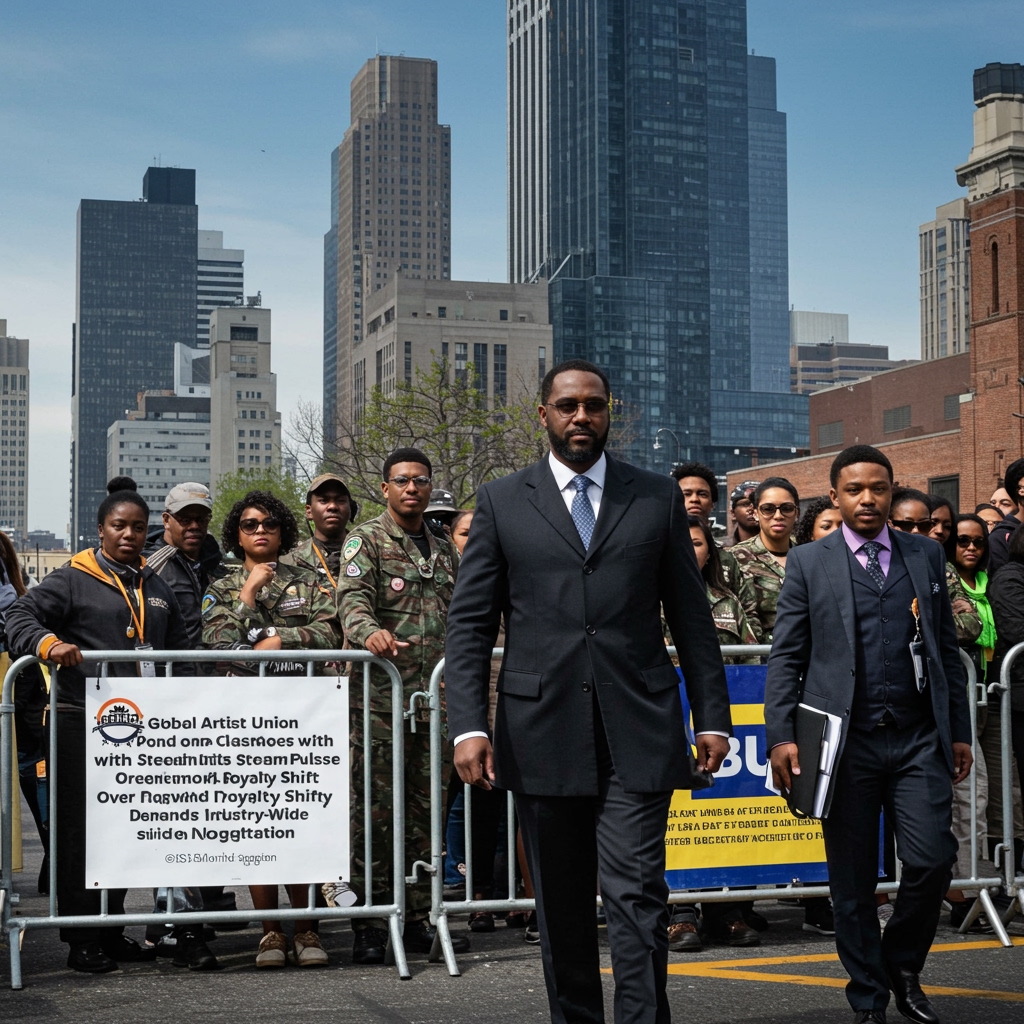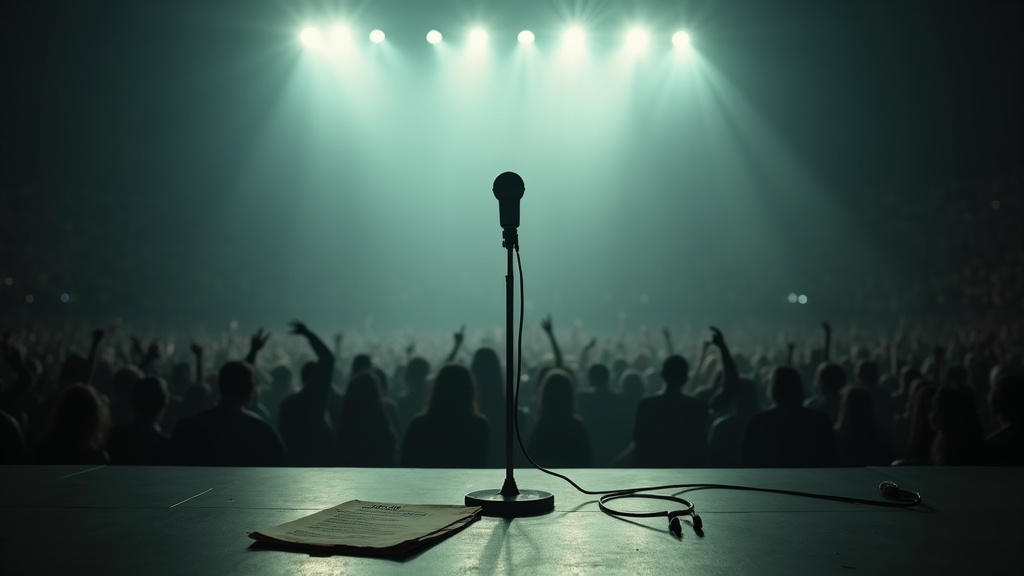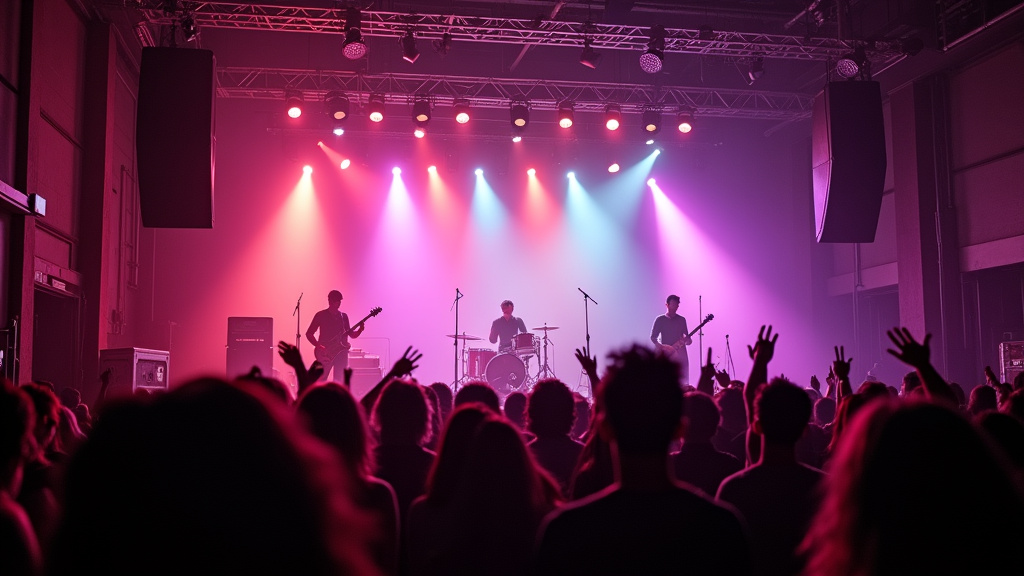Artists Unite Against StreamPulse Royalty Restructure
In a significant escalation of ongoing tensions within the digital music landscape, the Global Artist Union (GAU), a prominent international collective representing the interests of over 50,000 musicians worldwide, issued a forceful denunciation of the recently announced changes to the royalty structure by streaming giant StreamPulse. The formal statement, delivered on January 29, 2025, directly addressed StreamPulse’s new compensation model, which had been unveiled just two days prior, on January 27, 2025.
The GAU’s criticism centers on a core allegation: that StreamPulse’s revised royalty system will disproportionately and significantly disadvantage independent and emerging artists. According to the union’s analysis, the structural changes pivot away from the traditional per-stream rate as the primary determinant of artist income. Instead, the new model reportedly prioritizes payments tied to algorithmic promotion. This shift means that a substantial portion of the revenue pool allocated for artists is now linked to whether and how frequently an artist’s music is featured or boosted by StreamPulse’s internal recommendation algorithms and playlists, rather than simply the cumulative number of times their tracks are played by users.
Concerns for Independent and Emerging Creators
The potential ramifications of this algorithmic prioritization are a major source of concern for the GAU. They contend that this model inherently favors artists who already have significant market presence, label backing with marketing budgets to influence algorithmic visibility, or established relationships that can secure placement on high-traffic playlists driven by StreamPulse’s systems. For the vast majority of artists – particularly those who are self-releasing, independent, or still building their audience organically – their income is heavily reliant on the aggregation of individual plays across the platform. By de-emphasizing the per-stream rate in favor of algorithmic promotion payments, the GAU argues that StreamPulse’s changes risk substantially reducing the income for this critical segment of the creator community.
The union’s statement explicitly posits that these changes could result in a net decrease in earnings for the majority of artists on the platform, exacerbating existing inequalities in how digital music revenue is distributed. While StreamPulse’s stated intention for the changes remains subject to interpretation – potentially aimed at incentivizing engagement, platform loyalty, or success within their algorithmic ecosystem – the GAU views the practical effect as a detrimental redistribution of wealth away from grassroots and developing artists towards more established acts or those able to leverage promotional mechanisms.
Demands for Dialogue and Systemic Change
In response to what they deem an inequitable and unilaterally imposed system, the Global Artist Union has issued a clear set of demands. Their immediate call to action is for StreamPulse leadership to engage in immediate dialogue with the union. The GAU seeks a direct channel to discuss their concerns, understand the full implications of the new structure, and negotiate potential modifications.
Beyond direct talks with StreamPulse, the GAU is advocating for a far broader, industry-wide negotiation. They propose a multi-stakeholder forum involving not only artists (represented by organizations like the GAU) and streaming platforms (including StreamPulse and its competitors) but also music labels. The objective of this comprehensive negotiation is ambitious: to establish a more equitable compensation model for the digital music era.
The GAU has set a firm deadline for the outcome of such discussions, calling for a new, collectively agreed-upon compensation framework to be in place by the end of Q3 2025. This timeframe underscores the urgency with which the union views the current situation and their desire for tangible, industry-wide reform rather than piecemeal changes from individual platforms.
Prominent Artists Lend Support
The Global Artist Union’s position has quickly gained traction among high-profile artists, amplifying the call for collective action and putting additional pressure on StreamPulse and the industry at large. Multi-Grammy winners ‘Electra Vox’ and ‘The Riffsmiths’ are among the prominent musicians who have publicly voiced their support for the GAU’s condemnation and its demand for negotiation. The backing of such internationally recognized figures lends significant weight to the union’s arguments and helps to galvanize broader artist solidarity.
The public statements from artists like Electra Vox and The Riffsmiths highlight that the concerns are not limited to independent acts but resonate across the spectrum of musical careers, indicating a shared dissatisfaction with current digital revenue distribution models and the potential negative impact of StreamPulse’s changes even on established artists who may still rely heavily on streaming income.
Ongoing Tensions in Digital Music Royalties
The controversy ignited by StreamPulse’s royalty changes and the subsequent strong reaction from the Global Artist Union underscore the ongoing tensions over digital revenue distribution in the music industry. For years, artists and their representatives have argued that the current streaming models, while providing unprecedented global reach, often result in meager per-stream payouts that make it difficult for many creators to earn a sustainable living solely from their music streams. The opaque nature of royalty calculations, the distribution splits between platforms, labels, publishers, and artists, and the sheer volume of music available have all contributed to this complex and often contentious issue.
StreamPulse’s decision to alter its structure, particularly by linking payments more closely to algorithmic performance rather than raw stream counts, represents a significant shift in the economic relationship between the platform and artists. The GAU’s forceful pushback signals a growing resolve among musicians to collectively challenge platform policies they view as detrimental to their livelihoods and to advocate for systemic change that ensures a fairer share of the revenue generated by their work in the digital realm. The coming months, leading up to the GAU’s Q3 2025 deadline, are expected to see continued debate and potentially intense negotiations that could shape the future economics of music streaming for artists worldwide.





